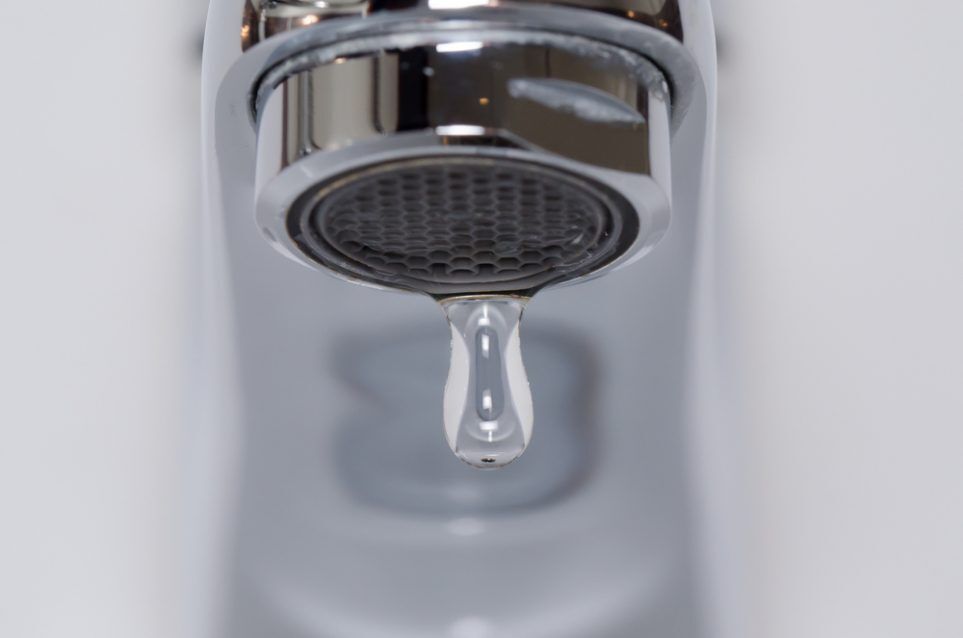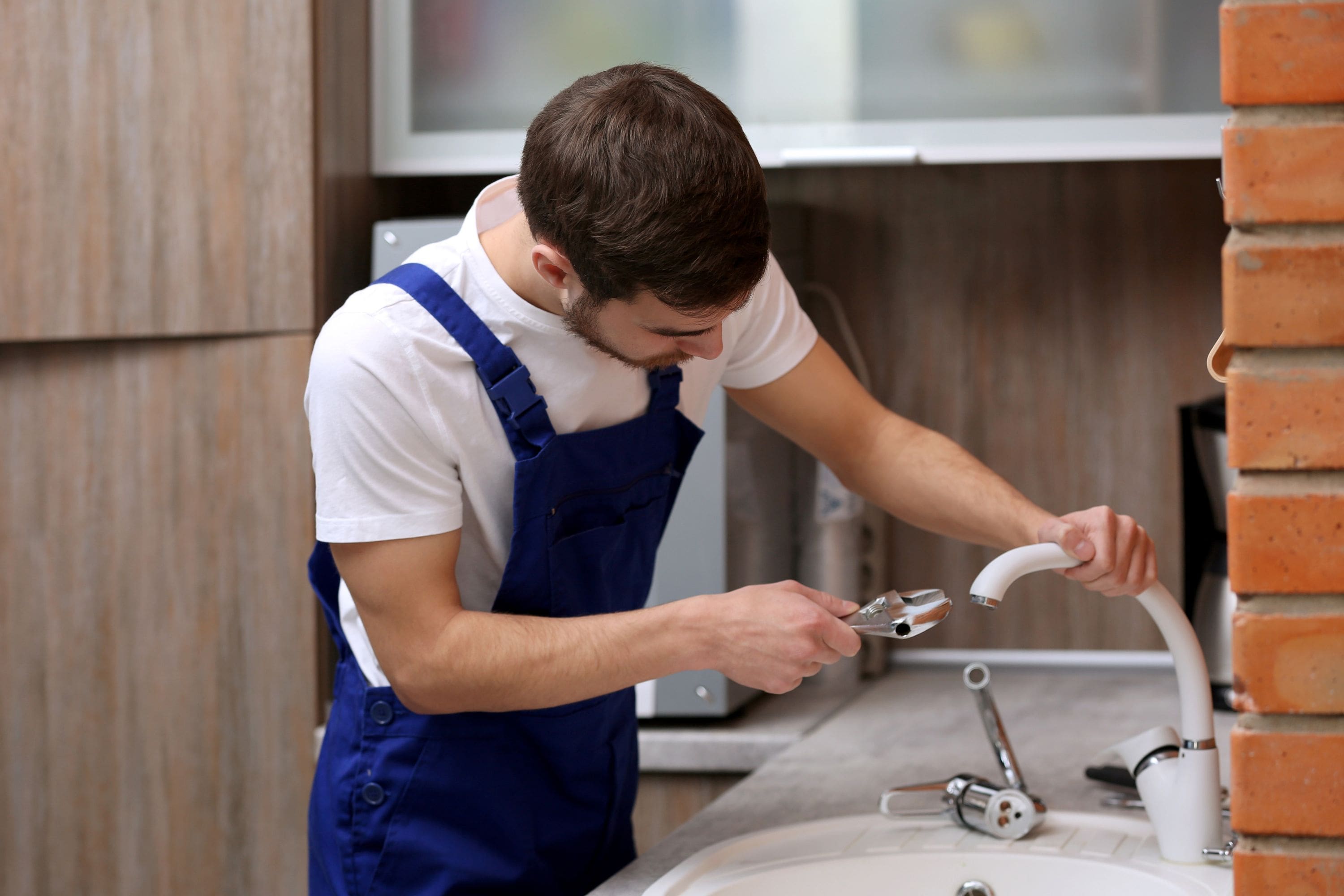Understanding the Significance of Dealing with a Leaking Faucet
Understanding the Significance of Dealing with a Leaking Faucet
Blog Article
They are making a number of great annotation related to Why Are My Faucets Dripping (And Can I Fix It Myself)? overall in the article which follows.

Leaking taps could feel like a small aggravation, but their impact goes beyond just the inconvenience of the noise. From wasting water to incurring unnecessary monetary expenses and health and wellness dangers, disregarding a dripping faucet can lead to various effects. In this post, we'll explore why it's important to address this common household concern without delay and effectively.
Wastage of Water
Ecological Effect
Dripping taps contribute significantly to water wastefulness. According to the Environmental Protection Agency (EPA), a solitary tap dripping at one drip per secondly can lose more than 3,000 gallons of water annually. This not just stress water sources however additionally impacts ecosystems and wildlife dependent on them.
Step-by-Step Overview to Repairing a Dripping Tap
Tools Needed
Prior to attempting to deal with a dripping tap, gather the needed tools, including a flexible wrench, screwdrivers, substitute parts (such as washing machines or cartridges), and plumber's tape.
Common Tap Issues and Their Solutions
Determine the sort of faucet and the particular problem causing the drip. Usual issues include damaged washers, rusty shutoff seats, or defective O-rings. Describe supplier guidelines or online tutorials for step-by-step assistance on repair services.
Financial Prices
Raised Water Costs
Past the ecological influence, trickling taps can pump up water expenses significantly. The collected waste in time translates into greater energy expenses, which could have been stayed clear of with timely repairs.
Possible Residential Or Commercial Property Damages
Additionally, extended dripping can cause damage to components and surfaces bordering the faucet. Water build-up can create discoloration, corrosion, and even architectural concerns if left unattended, resulting in additional repair service expenses.
Health and wellness Issues
Mold and Mold Development
The constant visibility of dampness from a dripping tap produces an ideal atmosphere for mold and mildew and mold growth. These fungi not only endanger interior air quality but also position health and wellness threats, specifically for people with respiratory system conditions or allergic reactions.
Waterborne Illness
Stationary water in leaking faucets can end up being a breeding ground for germs and other microorganisms, raising the threat of waterborne illness. Pollutants such as Legionella bacteria thrive in stationary water, possibly causing major diseases when consumed or breathed in.
DIY vs. Professional Fixing
Benefits and drawbacks of Do It Yourself Repair Work
While some might attempt to fix a trickling faucet themselves, DIY repair services come with their very own set of difficulties. Without proper knowledge and tools, DIY efforts can intensify the concern or cause insufficient repair work, prolonging the trouble.
Advantages of Hiring a Professional Plumber
Hiring a specialist plumber ensures that the underlying cause of the trickling tap is resolved properly. Plumbing professionals have the know-how and devices to diagnose and fix tap issues efficiently, conserving time and minimizing the threat of additional damages.
Environmental Responsibility
Private Contribution to Preservation
Taking responsibility for taking care of dripping taps aligns with wider initiatives towards water conservation and ecological sustainability. Every person's actions jointly make a significant effect on maintaining valuable sources.
Sustainable Living Practices
By prioritizing punctual repairs and embracing water-saving practices, individuals contribute to sustainable living techniques that benefit both present and future generations.
Safety nets
Normal Upkeep Tips
To prevent dripping taps, perform routine maintenance such as cleaning aerators, examining for leaks, and replacing worn-out parts quickly. Additionally, consider installing water-saving devices or updating to a lot more effective fixtures.
Significance of Prompt Repair Works
Dealing with dripping faucets as soon as they're seen prevents more water waste and potential damage, eventually saving both water and money in the future.
Effect On Home Worth
Assumption of Well-Maintained Residential Or Commercial Property
Keeping a residential property in good condition, consisting of addressing upkeep concerns like trickling taps, improves its perceived worth and charm among prospective purchasers or tenants.
Impact on Resale Worth
Properties with properly maintained plumbing components, consisting of faucets, command greater resale values in the real estate market. Addressing dripping taps can contribute to a favorable impact during residential or commercial property examinations and settlements.
Conclusion
Addressing a trickling tap surpasses simple benefit; it's a necessary step toward saving water, lowering monetary expenses, and safeguarding health and building. Whether through DIY repair work or expert assistance, acting to take care of trickling taps is a tiny yet impactful way to promote responsible stewardship of resources and add to a much healthier, extra lasting future.
How to Fix a Leaky Faucet: Step-by-Step Repair Guide
A leaky faucet may seem like a simple annoyance, but if it's not fixed promptly, that leak could cost hundreds to potentially thousands. From water damage to mold, mildew, and high water bills, even a tiny leak can be catastrophic if left unattended. Damage like this can even affect the overall value of your home, so it's important to take the right approach for leaky faucet repair. You may need the help of a plumber in some cases, but we've got a few tips you can try on how to fix a leaky faucet before calling the pros.
Four Faucet Types
When you're learning how to fix a leaky faucet, the first step is knowing what kind of faucet you're working with! There are four common types.
Cartridge Faucets
Cartridge faucets come in one- or two-handled varieties. In one-handled cartridge faucets, hot and cold water combines in a single cartridge. In the two-handled versions, hot and cold water are controlled separately and mixed in the faucet.
Ball Faucets
Ball faucets have a single lever you push up and down to adjust the pressure and rotate to change the temperature. A slotted metal ball controls the amount of water allowed into the spout.
Compression Washer Faucets
They're the oldest type of faucet, but they're still used in many homes — especially older ones. Compression faucets have two separate handles that, when turned, raise or lower the washer that seals a water valve. This valve stops water from flowing through the faucet when it is turned off.
Disc Faucets
Disc faucets rarely need to be repaired due to their maintenance-free design. The water flow is controlled by two discs — the upper one raises and lowers against a fixed lower disc, creating a watertight seal. If your disc faucet starts leaking, you may need to replace the seals or clean residue buildup from the inlets.
Fixing a Leaky Faucet
Step 1: Turn Off the Water
Whether you're learning how to fix a leaky bathtub faucet or how to fix a leaky kitchen faucet, always turn off the water supply to your working area when you're fixing a leak. The last thing you want is a flood added to your list of things to fix.
Look for the shutoff valves below your sink or around the tub and turn them clockwise to stop the water flow. If your faucet doesn't have shutoff valves, you may need to turn off the water for the whole house. Check to make sure it's off by turning the faucet on. If nothing comes out, you're ready to start the repair.
Step 2: Take Apart the Faucet
How you disassemble your faucet depends on the type of fixture you have. You can use a flathead screwdriver to remove the caps on top of the handle or handles for cartridge and compression faucets. Inside, you should see handle screws. Unscrew these with a screwdriver to remove the handle.
Disc- and ball-style faucets will typically have an inlet screw near the handle, and removing that will reveal the interior of the faucet.
Detach the Valve Stem
For cartridge- and compression-style faucets, you'll see the inner valve stem or cartridge once you remove the faucet handles. If you have a compression faucet, unscrew the brass valve stem. If you have a cartridge faucet, pull out the cartridge. If your cartridge has been in place for a while, it may require some tools or extra force to remove it due to mineral deposits.
Examine and Replace Parts
Once you've removed the parts, check them out to confirm what needs to be replaced. You may see corroded rubber washers, O-rings, stems, or cartridges. On a ball-style faucet, check the seats and springs for damage.
If you need to repair a leaky disc faucet, check the inlet and seals on the lower disc.
Once you determine what parts must be replaced, visit your local hardware store. Bring the damaged parts with you to ensure you can purchase the correct components to replace them.
Clean Valves and Faucet Cavity
If you've removed a stem or cartridge, you may notice mineral buildup in the faucet's threads. Use white vinegar to clean the valve seat by soaking it for a few minutes, then scrub it away with a soft toothbrush and rinse with warm water. You can also clean the interior of the faucet in the same way.
Reassemble the Faucet
Once your faucet is cleaned and the required parts have been replaced, it's time to reassemble it. Put the pieces back together and slowly turn the water supply back on. Doing this slowly is crucial because too much initial water pressure can damage the new hardware you've just installed.
https://homewarranty.firstam.com/blog/how-to-fix-leaky-faucet

As a keen reader about 4 Common Reasons for a Leaky Faucet, I think sharing that excerpt was a good thing. Do you know about another individual who is inquisitive about the topic? Feel free to share it. I treasure reading our article about What Causes Leaky Faucets & How To Fix Them.
Report this page